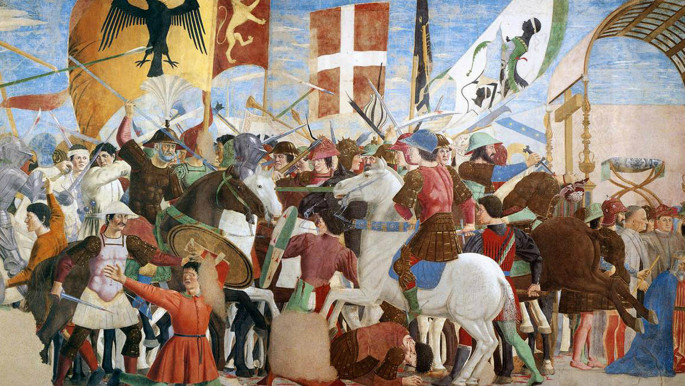Between the Ottomans and the Entente
Arslan had close ties with French diplomats and was very outspoken in his opposition to the Ottoman Empire’s alliance with Berlin and entry into the First World War.
The letter ordered Arslan to stop all anti-German activities, the receipt of this letter seemed to confirm Arslan’s fears that the sovereignty of the Ottoman Empire had been turned over to the German government.
The gathering turned into a Arab nationalist protest, the result of which led to further German complaints to Istanbul and the dismissal of Arslan as Consul. Arslan was told by Istanbul to close the embassy and hand over all files on Argentina’s estimated 110,000 strong Syrian community, including intelligence files, over to the German government.
Arslan refused and kicked up a fuss in the local press with Argentine newspapers accusing the German embassy of carrying out an act of piracy. The incident summed up the politically sensitive nature of the “Mahjars” (Ottoman Arab immigrants) to North and South America.
Stacy D. Fahrenthold’s new book Between The Ottomans And The Entente: The First World War in the Syrian and Lebanese Diaspora, 1908-1925 offers insight into the politics of migrant communities and their connections to their countries of origin.
 |
The book opens up new avenues for researching political history of the Middle East. We are challenged to think about how migration impacts the politics of Syria and perhaps gives us historical perspective on what the current Syrian refugee crisis might mean |  |
The Ottomans, and later the French, went through periods of seeing the Mahjars as opportunities, to seeing them as threats – both of which demonstrate the importance of the communities that settled in Argentina, Brazil and the United States.
The diaspora was a hotbed of political and nationalistic activity that helped shape the politics of Syria and Lebanon itself. Diaspora history is often ignored when discussing the history of the Levant and it is the aim of the book to get us to think about the relationship between migration and the concept of home.
While we often think about the Paris Peace Conference of 1919, Sykes-Picot agreement and the colonial design for the Middle East, we often forget alternative designs for the future of the region being offered during this time.
 |
|
| Read more from The New Arab's Book Club: Muhammad: Prophet of Peace Amid the Clash of Empires |
Syrian nationalist in the Americas placed hopes for an independent Syria through an alternative to French colonial rule, which was to put Syria under American protection.
America was seen by many burgeoning nationalist movements across the Middle East as a source of inspiration, as it project ideals of democracy, freedom, self-determination and anti-colonialism.
American backing was regarded by many as a necessity to fend off European colonial encroachment. A proposal for an American mandate being setup in Syria was taken seriously by Syrian nationalists who made it their rallying cry from New York to Buenos Aires – delegations from the Mahjar even attempted to gain access to the Paris Peace Conference to put forward this notion but were denied entry by the French.
It is important here to recognise that the Mahjar politics was not unified and during the First World War they had spilt into different camps and included camps calling for Lebanon to break off from Syria.
 |
The Mahjar were considered dangerous and necessary for whoever ruled Syria and Lebanon |  |
The Mahjar were considered dangerous and necessary for whoever ruled Syria and Lebanon. The French encouraged repatriation of a certain number Lebanese migrants while denying entry to others. A key determinate for the French was the 1921 population census in-which the country was classed along sect and confessional lines, based on these numbers, the French instituted a regime of who could come back and who couldn’t in Lebanon.
The book opens up new avenues for researching political history of the Middle East. We are challenged to think about how migration impacts the politics of Syria and perhaps gives us historical perspective on what the current Syrian refugee crisis might mean.
It also put the historical role of the United States in a new light as we have come accustom to thinking of the US as a neo-imperial power in the Middle East, but the idea that pro-independence movements would look to the United States for protection from European powers without contradicting their ideals is something that would be hard to believe today.
The book greatly contributes to our understanding of Mahjar communities and their discourses.
Usman Butt is a multimedia television researcher, filmmaker and writer based in London. Usman read International Relations and Arabic Language at the University of Westminster and completed a Master of Arts in Palestine Studies at the University of Exeter.
Follow him on Twitter: @TheUsmanButt




